Guest Post with Aicacia Young, RDN: How To Delay Muscle Fatigue
I won't bore you with the details of why I haven't posted in two months. Instead, I'll just say that it's been an action-packed start to the season and I'll update you shortly. For now, I'm going to hand over the writing reins to a lovely young lady by the name of Aicacia Young. I figured you could all use a brief break from my snarky, blunt, punch-you-in-the-face style of writing. You might recognize the name from an earlier post about her recent book, "Rock Climbing Nutrition: The Essential Food Guide For Climbers," which you can buy as an ebook HERE. Or hopefully, you've already discovered her information packed website, Climb Healthy. I've already asked Aicacia to talk to me about nutrition for our new "The Specialist" series, so be on the lookout for that in the near future.
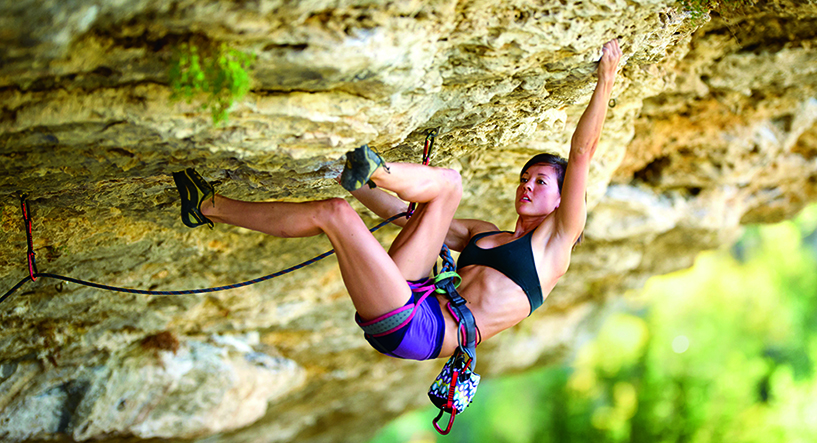
Now, on with the show.
How To Delay Muscle Fatigue
By: Aicacia Young, RDN
Last month, some of you asked about the connection between diet and forearm pump. And since I'm about to take a trip back to the amazing and utterly pumpy Red River Gorge, I figured it would be a fitting post for sending season.
In this article, I will explain the causes of muscle burning, muscle fatigue, and muscle swelling (aka getting SWOLE). All of these factors work together to create that "pumped out of your mind" feeling you sometimes notice after a tough climb.
Let's blame lactic acid, right?!?
Many people tend to believe that muscle burning is the result of too much lactic acid, but since my purpose in life seems to be pissing off the masses, I'm going to explain to you why this is not the case - according to SCIENCE.
Professor Matthew Hickey, who earned his PhD in Bioenergetics and currently serves as the Director of the Human Performance Clinical Research Lab at Colorado State University, says,
"The bottom line is... there is no lactic acid in human beings."
Before you start yelling at me, Hickey explains that your body is actually producing lactate, the alternate base to lactic acid, and you keep producing it 24/7.
He goes on to say that lactic acid doesn't really show up until you have a blood pH below 6. Intense exercise can send your blood pH down into the high 6's, but a blood pH below 6 will reserve you a comfy bed in the hospital.
So what causes the burn?
There is actually a difference between the muscle burn that you feel during intense exercise and true muscle fatigue. The burning sensation, or acidosis, that you feel after a round of weighted squats or 4x4's is actually an accumulation of hydrogen ions in the muscle tissue.
Scientists used to believe that lactate was the cause of muscle burning because it accumulates in the muscle tissue along with hydrogen ions, but they have since realized that they were following the wrong trail.
Lactate also leaves the cell along with hydrogen ions, but the liver can actually recycle lactate and break it down into glucose for more energy. So, it's the hydrogen ions, and not the lactate, that cause the burning sensation in your muscles.

Why can't I hold on anymore?
Since the body contains a network of complex systems, there are many factors that contribute to muscle fatigue.
During exercise, muscle fatigue occurs when a muscle can no longer contract in response to a stimulus.
This is why you can eventually fall off jugs if you keep climbing while extremely pumped. Your forearm flexors can no longer contract, even though your brain is telling them to, and your hands can open up on holds that once felt solid.
Just like the engine of a car can malfunction for various reasons, there are a number of factors that can cause your muscles to stop contracting properly. If you think about a car that won't start, it could be an electrical problem (i.e. the alternator can't generate the energy to start the engine), a fuel problem (not enough gas), or an engine problem (i.e. sludge buildup). In the same way, there are two main causes of muscle fatigue: neural fatigue (weakened electrical signals) and metabolic fatigue (too much or too little of a given substrate).
Neural fatigue
For new climbers or climbers who don't train regularly, a common cause of muscle fatigue is actually neural fatigue. This condition is characterized by a nerve's inability to generate a sustained signal after prolonged exercise.
When you engage in any form of training, you train your nerves, as well as your muscles, to generate stronger and longer-lasting nerve impulses. This is why the stronger you become as a climber, the harder it is to completely exhaust your muscles.
Metabolic fatigue
In addition to neural factors, muscle fatigue can also be caused by metabolic factors, including:
Not enough muscle glycogen = not enough carbohydrates stored before exercising to make ATP
Too much inorganic phosphate (more research needed) = normal by-product of muscle contractions (see video)
Too much ammonia (NH3) = by-product of intense exercise and protein metabolism
Too much potassium outside the cell = exhausted Na/K pump weakens electrical current needed for muscle contractions
Too much heat = normal by-product of strenuous exercise
How to prolong metabolic muscle fatigue
Of course more research is needed in the world of exercise physiology, but for now, there are a few things you can do that may prolong muscle fatigue.
1. Insufficient muscle glycogen
If you're burning through your stores of muscle glycogen too quickly and just plain running out of fuel, you can better prepare by consuming carbohydrates before climbing.
You don't have to carb-load like it's a marathon and stuff your face with bread and pasta, but keep in mind that carbohydrates are your primary fuel when climbing. See my article "How to Eat on Climbing Days" for more specifics.
3. Ammonia accumulation
One small study of 11 male subjects suggests that consuming an 8% carbohydrate-electrolytes solution during prolonged intense exercise (like a full or half day of climbing) can reduce the negative effects of ammonia accumulation (and therefore prolong muscle fatigue), but more research is needed to confirm their findings.
*Translation: Consuming a source of easily absorbable carbohydrates during exercise may help to prolong muscle fatigue.
4. Potassium accumulation
If you remember your basic chemistry courses, then you may remember the term "sodium-potassium pump" or Na/K pump. If you think about shooting a slingshot, then you know that the further you pull back, the harder and faster the slingshot will shoot forward.
The further you remove the slingshot from its state of equilibrium, the more energy it generates surging forward. In the same way, the sodium-potassium pump in your cells generates a powerful electrical charge needed to trigger muscle contractions.
When your Na/K pumps become exhausted, that crucial electrical signal gets weaker and weaker, leading eventually to muscle fatigue. Luckily, this is something that you can improve with diet and proper training.
Consume plenty of potassium on a daily basis
Consume plenty of magnesium on a daily basis
Climb regularly
Consume carbohydrates before exercise
N-acetyl-cysteine supplements may be helpful for trained individuals
If you happen to be potassium-deficient, then you will likely encounter muscle fatigue much faster than your well-nourished counterparts. In order to avoid a potassium deficiency, try to include plenty of potassium-rich foods in your diet on a daily basis.
Potassium deficiency can also be caused by magnesium deficiency, so be sure to consume magnesium-rich foods in your diet as well. If you do have a potassium-deficiency, then continue to exercise as you increase your intake of these minerals.
Exercise has been shown to help improve potassium muscle stores, and trained individuals are able to regulate their potassium levels more efficiently than untrained individuals who do not engage in regular exercise. So keep climbing.
Carbohydrate consumption before exercise may also improve potassium muscle stores, as the two appear to be directly related.
Finally, the antioxidant N-acetyl-cysteine (NAC) appears to help delay fatigue, especially in the limbs, during prolonged exercise. One study from 2006 found that NAC was capable of delaying muscle fatigue by improving potassium regulation in trained individuals.
Unfortunately, this study used intramuscular injections of NAC, which isn't really practical for any human beings, but this review from 2008 confirms that NAC can play a role in delaying muscle fatigue in trained individuals.
5. Hyperthermia
Too much heat does more than just make you sweat and grease up all the holds on your project. Climbing in hot climates, without acclimating properly, can lead to faster dehydration and muscle fatigue. It also makes you grumpy... or is that just me?
If you're going to climb in the sweltering heat, make sure you acclimate and hydrate properly. You can also help lower your body temperature by drinking ice cold fluids and placing cooling packs on your body. The other alternative is to flee from the heat altogether and learn how to climb with numb hands, but who really enjoys that?
On-the-wall tricks to fight forearm pump

One of the main causes of forearm swelling is restricted blood flow. If you think about the position of your wrists while you're climbing, you are almost always in an extension position.
Constant extension will make it more difficult for blood to flow in to your fingers and out to your heart. It's very similar to pinching a hose when you want to stop a stream of water.
When you make it difficult for blood to pass through your arm to your fingers and back out to your heart, then it begins to build up in your forearms - and you begin to look like the hulk. (This is when you should take pictures of your forearms if you're looking to attract a mate.)
According to Eric Horst, climbing trainer and author of multiple training books, the best way to combat this restriction in blood flow is to flick your wrists between moves and shake out your hands above and below your head.
Click here to read Eric's full article, "Slowing the Pump Clock"
Conclusion
Phew! I just drowned you in knowledge, so hopefully you found it somewhat helpful.
If you are a new climber or even an experienced climber who has never really trained for climbing and you'd like to improve, then you might want to consider a basic training program, as you most likely experience neural fatigue while climbing.
If you're an experienced climber with trained nerves and muscles, then it may be time for you to focus on your diet and possibly consider supplementation. So in order to recap:
Consuming carbohydrates (starchy vegetables, fruits, grains, etc.) before a long day of climbing can help build up glycogen stores
Consuming carbohydrates during a long day of climbing can help reduce the effects of ammonia in your muscles and blood
Consuming roughly 4.7 grams/day of potassium (for ages 19+) can help increase the efficiency of your Na/K pumps
Consuming the recommended intake of magnesium for your age can help prevent a potassium deficiency
Taking 1800 mg/day of an oral NAC supplement (like this one) may delay fatigue in well-trained climbers
Acclimating and hydrating in hotter climates can help delay muscle fatigue
I'm your favorite and you love me the most
Hopefully this has helped you understand the role that proper nutrition can play in your climbing performance.
To download a shopping list of potassium- and magnesium-rich foods, click HERE!

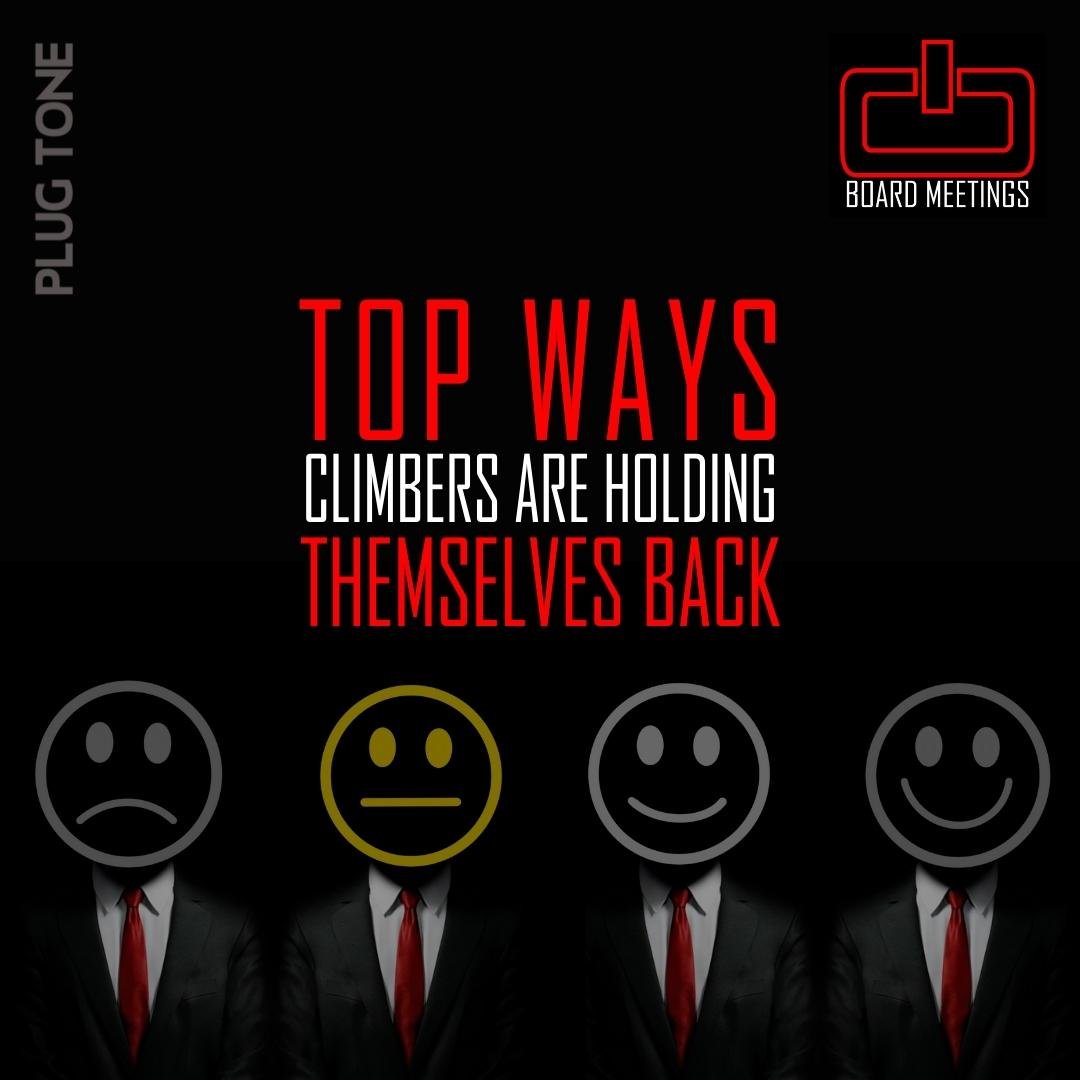

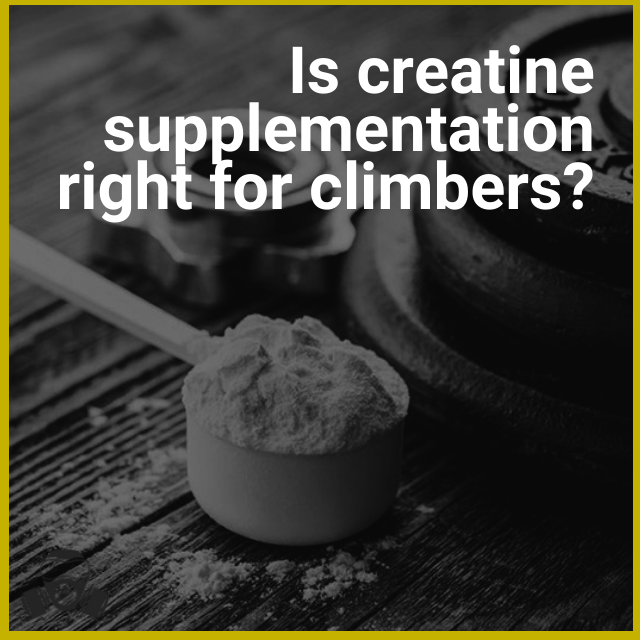






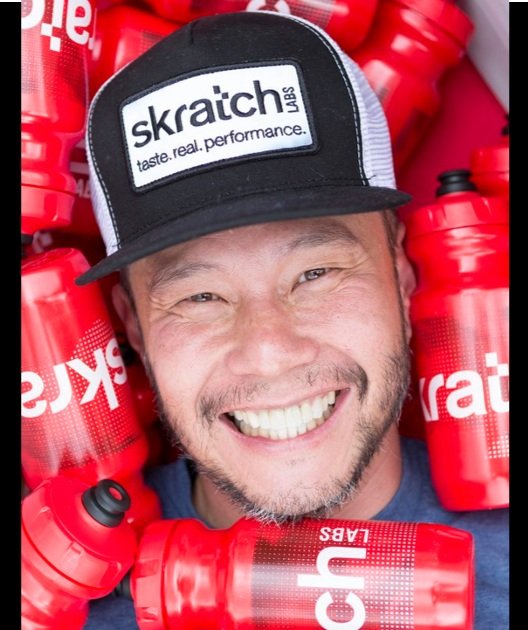


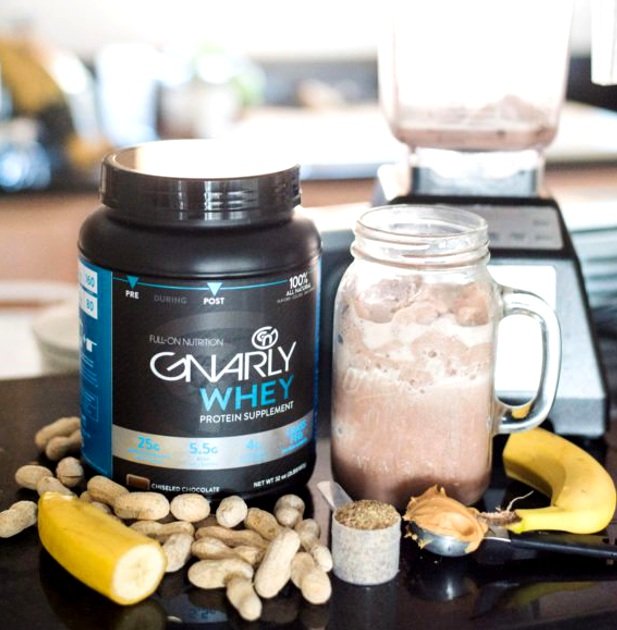












Certified Nutrition Specialist Caitlin Holmes discusses body composition, which is often conflated with weight loss and can thus be a very polarizing topic.